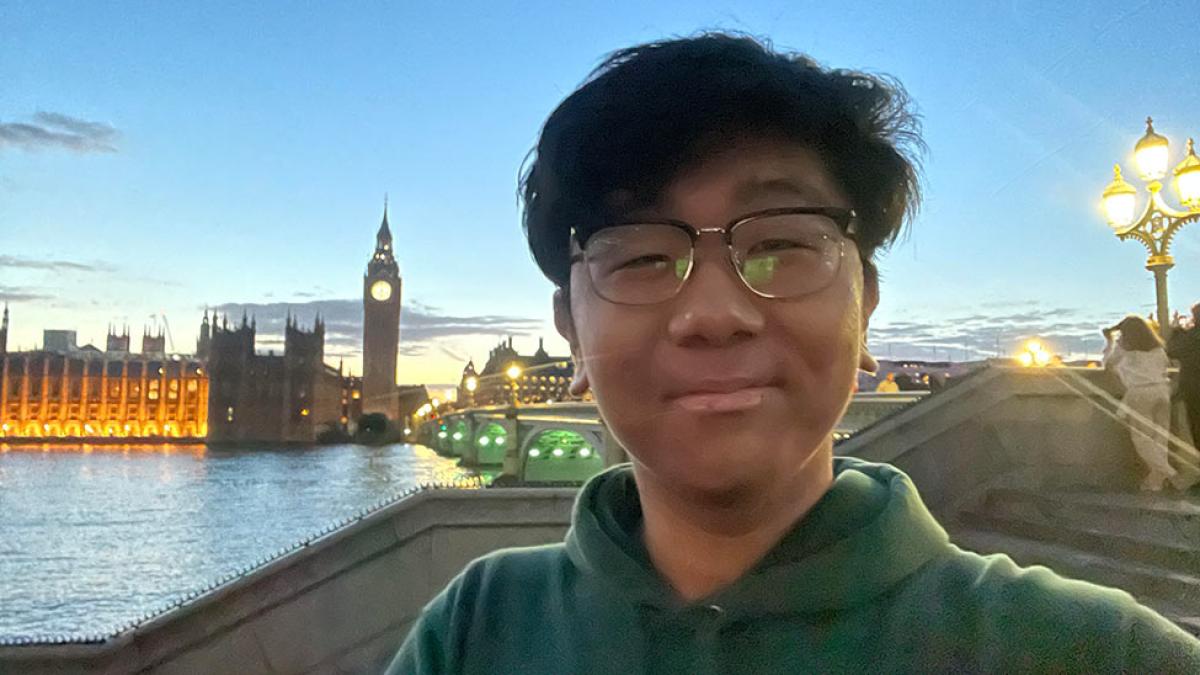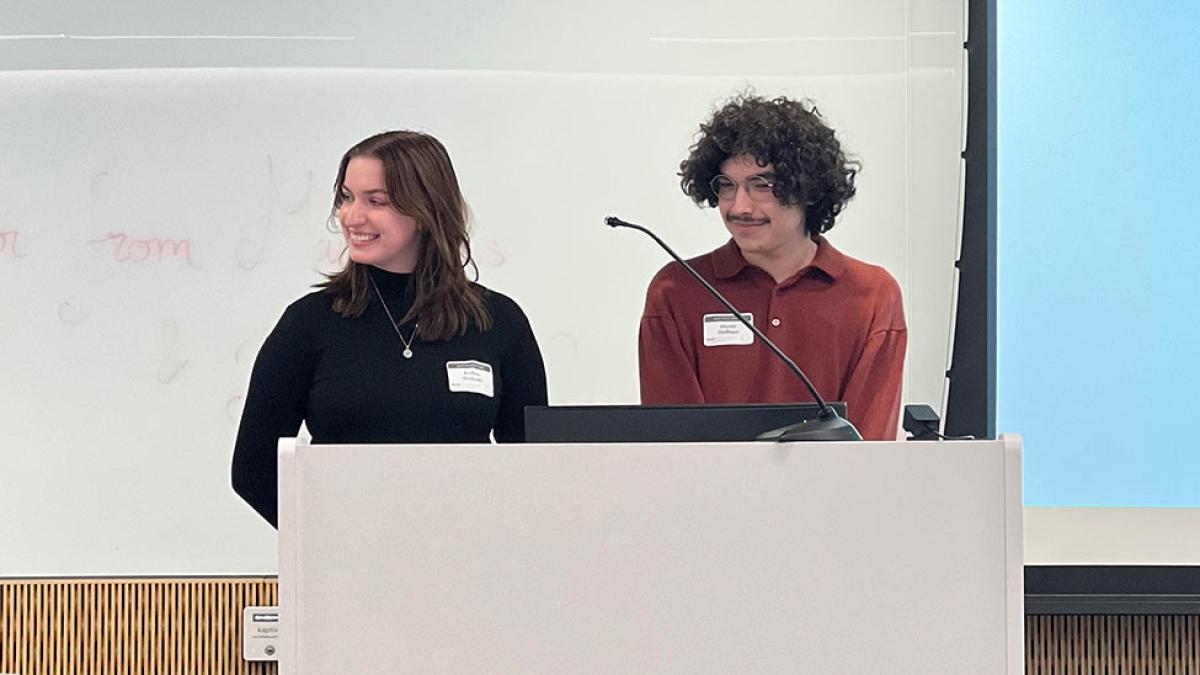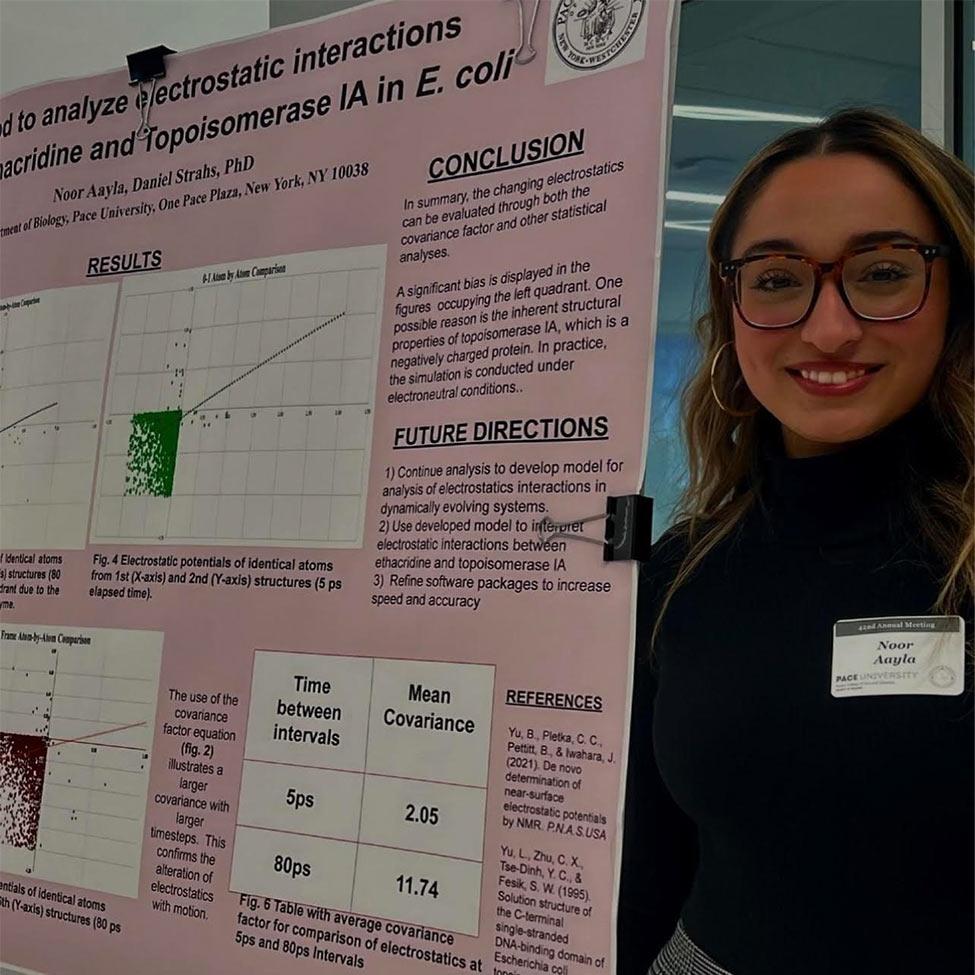
Breaking Barriers: STEM Students Reaching New Heights through CSTEP Grant
While numbers are trending in a positive direction—women, as well as Hispanic, Black, American Indian, and Alaskan Native people are all pursuing advanced degrees in STEM at increasing levels—lack of diversity in STEM remains a longstanding concern.
According to the National Science Foundation, women represented only 35 percent of the workforce in STEM (science, technology, engineering, and math) fields in 2021. Hispanic, Black, American Indian, and Alaskan Native people collectively made up just 24 percent, and were less likely to work in STEM positions that required a bachelor’s degree or higher while earning lower median wages than white or Asian STEM workers.
With an aim of increasing the number of students from underrepresented groups pursuing STEM careers, the New York State Education Department issues grants to institutions through the Collegiate Science and Technology Entry Program (CSTEP). Last winter, Pace University received a grant of $60,000 a year for four years to help fund scholarships for students from underrepresented groups and who are economically disadvantaged, and to provide resources for student-faculty research collaborations, skills workshops, and guest speakers.
“Students learn to think like scientists and engage in activities like scientists [while engaging in] student-faculty research,” said Professor of Mathematics Brian Evans, EdD, who is the project coordinator of Pace’s CSTEP grant. “Students also have opportunities to participate in presentations by faculty, guest speakers, and high school students interested in STEM. Moreover, there is funding for stipends and lab equipment from which students can benefit.”
The program provides the faculty involved the ability to shape the trajectories for students who will go into STEM careers. Giving students the tools they need to succeed is highly rewarding.
Added Associate Professor of Chemistry Elmer Mojica, PhD, director of the grant: “The program provides the faculty involved the ability to shape the trajectories for students who will go into STEM careers. Giving students the tools they need to succeed is highly rewarding. This program is another way of accomplishing the Pace motto Opportunitas.”
Hear from four students whose work with CSTEP has impacted their undergraduate experience and their future aspirations.
Noor Aayla ’23, Behavioral Neuroscience

Research focus: Electrostatics in Topoisomerase and Ethacridine
Faculty mentor: Daniel Strahs, PhD
What aspect of the program has been most meaningful to you and why?
This program is such an incredible program for uplifting the strengths everyone inherently possesses. It aids in creating a platform for STEM-majored minority people at Pace to be exposed to different opportunities, to be given the same ability to succeed in their work in the sciences. The number of programs, institutions, and collaborations that this program has is so beneficial, especially for a student who is trying to understand and figure out their path in the sciences.
How has this program impacted your academic and/or career aspirations?
One of the many ways this program has aided me is to match me with my current mentor, Daniel Strahs, PhD. If I did not have the opportunity to do research with him, I would never have discovered my interest and passion for biochemical computational mathematics. Thankfully so, with the aid of my mentors at CSTEP, I also got accepted to Weill Cornell Medical College, which I hope to attend next fall!
Sarah Gomez ’23, Behavioral Neuroscience
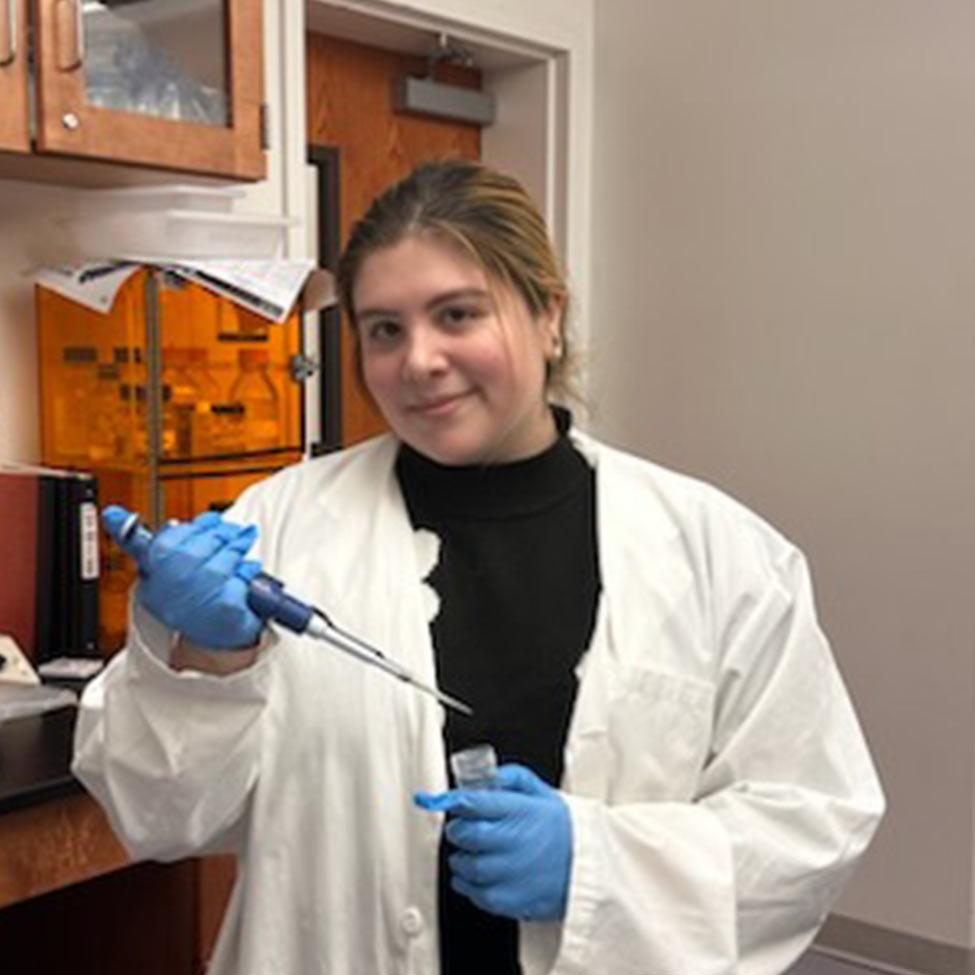
Research focus: Correlation between fertility and Alzheimer's using C.elegans
Faculty mentor: Matthew Marcello, PhD
What have you learned about the research process?
Through my involvement in research projects, I have discovered that the research process can be arduous and necessitates the creation of multiple backup plans in case of experiment failures. Additionally, it requires problem-solving skills and a great deal of creativity.
How has this program impacted your academic and/or career aspirations?
As a result of my involvement in CSTEP, I have been able to cultivate my research ideas and attend the Society for the Study of Reproduction Conference in Spokane, Washington, last summer. The program also inspired me to apply to graduate school, and I am excited to share that I will attend UC Berkeley, pursuing a master’s degree in molecular science and software engineering after completing my undergraduate studies.
Goldie Hutchful ’24, Chemistry
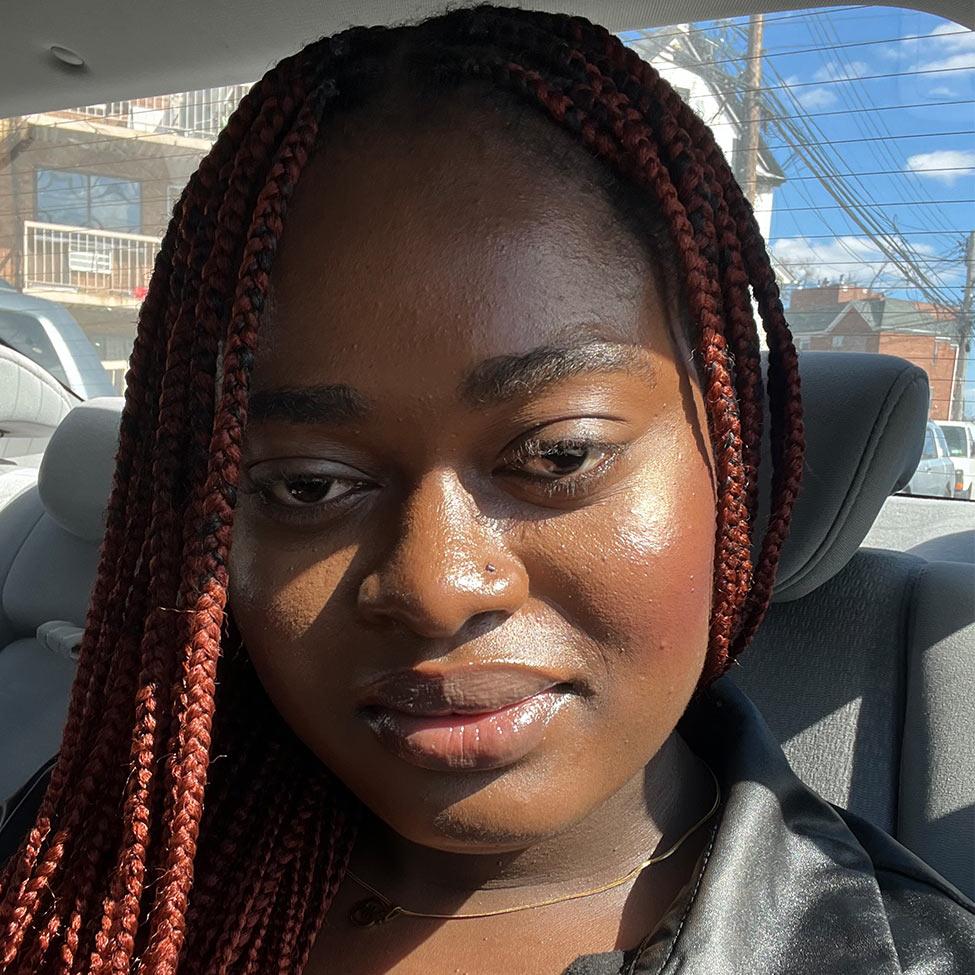
Research focus: Antimicrobial and UV-resistant facial formulations
Faculty mentor: JaimeLee Rizzo, PhD
How have the faculty involved with the program impacted your experience?
The professors involved in CSTEP do their best every week to help us. We have had a workshop on building a better resume for academic or career reasons, and they have invited other great professors to come and talk to us about their research. We have also had doctors come in to speak about their career paths. The professors also listen to our needs and the events we want to have, advise us, and write recommendation letters. They are great mentors.
How has this program impacted your academic and/or career aspirations?
This program has made me get into research work, and I have decided to do my PhD after graduation. I was also encouraged to apply this summer to the REU (Research Experience for Undergraduates) program. So far, I have heard back from Stony Brook University and Tufts University. They both offer summer programs in which students receive free housing, a stipend, and the opportunity to conduct research with a professor at the colleges. I have chosen Stony Brook because that is where I intend to go to graduate school and obtain my PhD. It is a win-win situation for me, and this would have never occurred if it wasn't for CSTEP and the fantastic faculty mentoring us.
Brook Thorpe ’25, Behavioral Neuroscience
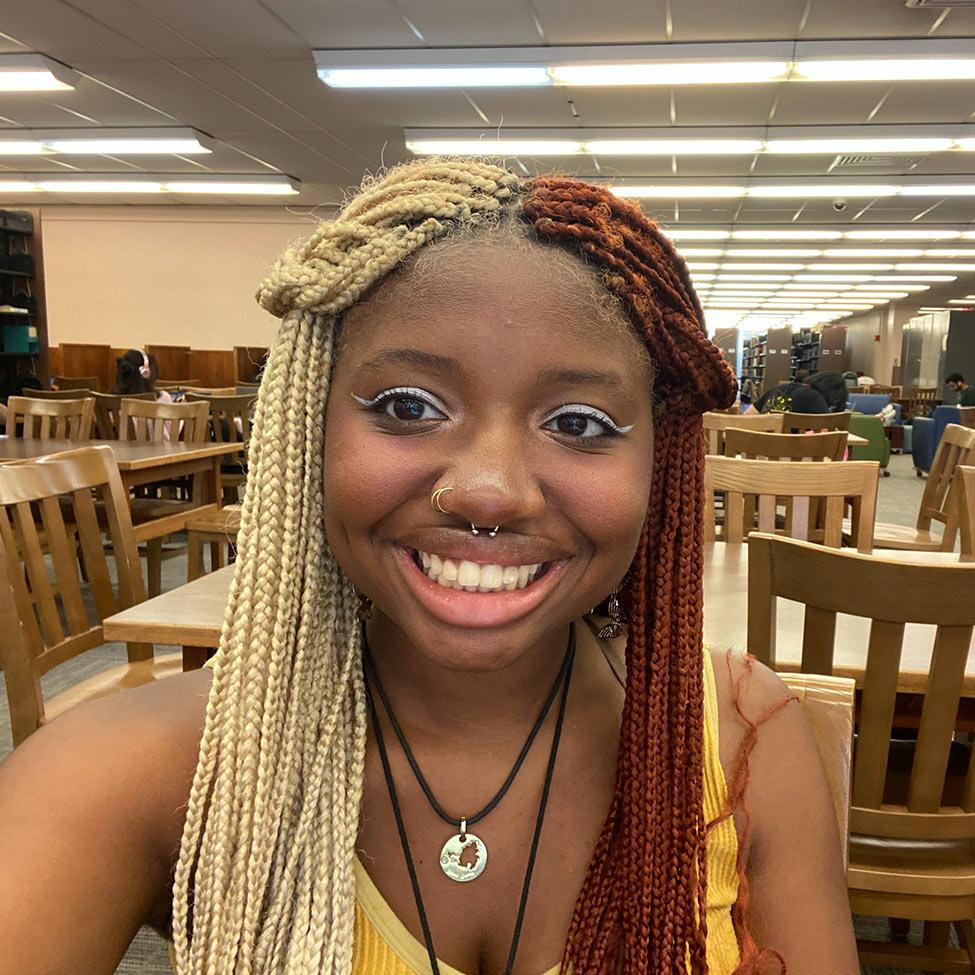
Research focus: Mutation on the beta subunit of voltage gated calcium channels in frog eggs
Faculty mentor: Zafir Buraei, PhD
What have you learned about the research process through this program?
Being in this program has allowed me to gain knowledge about the research process and, specifically, how research is not linear. I think I originally went in believing that everything I did needed to be perfect, but by being in this program, I have found that you only learn by failing. The greatest scientists had to fail many times before they succeeded, and my failure is not a representation of my abilities, but rather a showcase of my dedication to continue to find the solution to the questions at hand.
What aspect of the program has been most meaningful to you and why?
The most meaningful part of this program is being able to exist in a space with students of color in a program like science that often lacks that representation in the classroom. Being able to see people who either look like you or have faced the same or similar adversities that you have, succeed in their fields, allows for others to see themselves in that way and continue to push for their goal despite what they might face.
Related Stories
Students in Pace University's First-year Experience in London program study British literature from the heart of London, explore world-renowned theaters and museums, and form lifelong bonds to each other and to Pace.
As recipients of a 2022 Dyson Summer Research Award, Dante Dallago ’24, Directing and Peace and Justice Studies, and Kalina Walaski ’24, Acting and Peace and Justice Studies, collaborated on “Happy Holidays,” an investigative theater performance piece exploring the dynamics of the holiday dinner table from the perspective of Gen Z students.
Through a Provost Office Student Faculty Undergraduate Research Initiative Award, Film and Screen Studies major Veronika Orlovska '25 visited a Ukrainian refugee camp in a small town in Ireland to share the experiences of children±—rooted in her own personal story—through the power of art and film.
